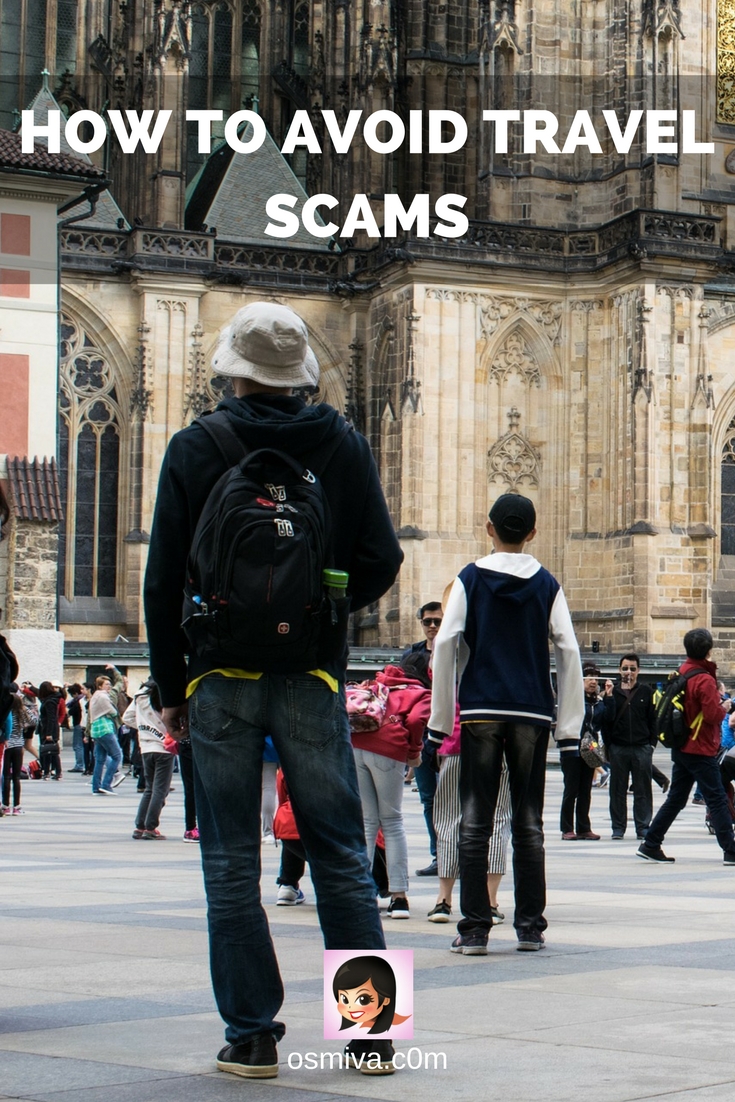Traveling is an incredible way to explore new cultures, meet people, and create unforgettable memories. However, travel scams are a common issue that can turn your dream vacation into a stressful experience. By staying informed and vigilant, you can avoid falling victim to such scams. This guide will provide you with proven tips to recognize and avoid common travel scams, ensuring your trips remain enjoyable and stress-free.
1. Research Your Destination Thoroughly
Before you embark on your journey, spend time researching your destination. Familiarize yourself with common scams reported in the area and understand how locals interact with tourists. Websites like our Destination Guides can help you gain insights into the specific challenges travelers face in various regions.
2. Be Cautious with “Helpful” Strangers
Scammers often pose as helpful locals to gain your trust. They may offer unsolicited assistance, such as carrying your luggage or providing directions, only to demand a fee later. Politely decline such offers unless you’re sure of their intentions.

3. Watch Out for Taxi Scams
Taxi scams are among the most common issues travelers face. Drivers may overcharge, take longer routes, or claim their meter is broken. To avoid this, use reputable rideshare apps or pre-book transportation through your accommodation. For budget-friendly options, explore our Affordable Stays and Location-Based Stays guides for trusted recommendations.
4. Avoid Overpriced Tours and Activities
Some scammers sell overpriced or fake tours to unsuspecting tourists. Always book your activities through reputable platforms or consult our list of Best Travel Sites for reliable options.
5. Guard Against Pickpocketing
Pickpocketing is a prevalent problem in crowded tourist areas. Use anti-theft bags, keep valuables secure, and stay alert in busy locations. Avoid placing wallets or phones in back pockets, as these are easy targets.
6. Stay Alert to “Fake” Police Officers
In some destinations, scammers pose as police officers to intimidate tourists into paying fines for fabricated violations. If approached, ask for identification and, if in doubt, contact your local embassy or consulate for assistance.

7. Be Wary of Currency Exchange Scams
Currency exchange scams involve giving tourists counterfeit money or incorrect amounts during transactions. To avoid this, exchange currency at official banks or trusted exchange counters. Always count your money before leaving the counter.
8. Steer Clear of Overpriced Restaurants
In tourist hotspots, some restaurants inflate prices or add hidden charges to your bill. Always check the menu prices before ordering and request a detailed bill. Reading reviews on our Hotel Reviews page can help you find eateries with transparent pricing.
9. Avoid Free Items or “Gifts”
Scammers may offer free bracelets, flowers, or souvenirs only to demand payment after you’ve accepted. Politely decline such offers and walk away to avoid confrontation.
10. Verify Hotel Booking Confirmations
Scammers sometimes create fake hotel booking websites or listings. To ensure authenticity, book accommodations through reputable platforms. Check our guides on Luxury Hotels and Budget Hotel Options for trusted recommendations.
11. Stay Vigilant at ATMs
ATM fraud, such as card skimming or hidden cameras, is a growing issue. Use ATMs located inside banks or busy areas and cover your PIN while entering it. Monitor your account regularly for unauthorized transactions.
12. Avoid Fake Souvenirs
Many street vendors sell counterfeit goods, claiming they are authentic local crafts. Research reputable shops beforehand and verify the authenticity of the items you wish to purchase.
13. Protect Your Personal Information
Scammers may attempt to steal personal information through phishing emails, fake Wi-Fi networks, or fraudulent phone calls. Avoid connecting to unsecured networks and be cautious when sharing sensitive information online.
14. Watch for Overbooked Hotels
Some accommodations claim to be overbooked and redirect you to a lower-quality option, pocketing the difference. Prevent this by confirming your reservation in advance and keeping a copy of your booking confirmation.
15. Avoid the “Broken Taxi Meter” Scam
Drivers may claim their meter is broken and overcharge tourists. Always insist on using the meter or negotiate a fair price before starting the ride. For more tips, visit our Travel Safety Tips section.
16. Learn Basic Local Phrases
Knowing key phrases in the local language can help you communicate effectively and avoid misunderstandings. This can be particularly useful in negotiating prices or seeking help from locals.
17. Be Skeptical of “Too Good to Be True” Deals
Whether it’s a cheap tour, accommodation, or service, scams often lure victims with unrealistic deals. Always research and verify offers before making payments.
18. Avoid Street Gambling
Street gambling setups, like shell games, are designed to make you lose. Stay away from such activities to avoid losing money.
19. Ensure Safety When Booking Online
Only book accommodations, flights, and activities through verified websites. Explore our Travel Planning resources for reliable booking tips.
20. Be Aware of “Fake Monks”
In some destinations, scammers dress as monks to solicit donations. Genuine monks typically do not ask for money in public places. Politely decline and continue on your way.
21. Travel Insurance is a Must
Investing in travel insurance can save you from financial losses in case of emergencies or scams. Review your coverage options to ensure you’re well-protected.
22. Connect with Fellow Travelers
Joining traveler forums or groups can help you learn from others’ experiences and avoid common pitfalls. For more tips, check out our Blog.
23. Know Your Rights
Understanding your rights as a traveler can help you handle disputes with service providers. Keep a list of local emergency numbers and embassy contacts handy.
24. Avoid Crowded Tourist Traps
While visiting popular attractions, be mindful of your surroundings. Scammers often target crowded areas where distractions are plentiful.
25. Have a Backup Plan
Always have a backup plan in case your original arrangements fall through. Carry emergency cash, have alternative accommodation options, and know your transportation routes.
Conclusion
Travel scams are an unfortunate reality, but they don’t have to ruin your trip. By staying informed, vigilant, and proactive, you can navigate your travels with confidence and peace of mind. For more tips on safe and enjoyable travel, explore our extensive resources on Travel Planning and Travel Safety Tips.
FAQs
1. What are the most common travel scams?
Common travel scams include taxi overcharging, fake police officers, and overpriced tours. Researching your destination can help you avoid these issues.
2. How can I avoid pickpockets while traveling?
Use anti-theft bags, stay alert in crowded areas, and avoid displaying valuables. Keeping your belongings secure is essential.
3. Should I use cash or card while traveling?
Using a mix of both is advisable. Always carry a small amount of cash and use cards at trusted establishments.
4. How can I verify the authenticity of a tour operator?
Read online reviews, ask for recommendations, and book through reputable platforms. Check our Best Travel Sites for trusted options.
5. Are currency exchange booths safe?
Use official banks or trusted exchange counters. Avoid exchanging money with street vendors to prevent scams.
6. Can travel insurance protect me from scams?
Travel insurance typically doesn’t cover scams but can protect against emergencies like theft or cancellations. Review your policy carefully.
7. What should I do if I fall victim to a scam?
Report the incident to local authorities and your embassy. Document the details to help prevent others from falling victim.

